Five Questions with Kristy Waller
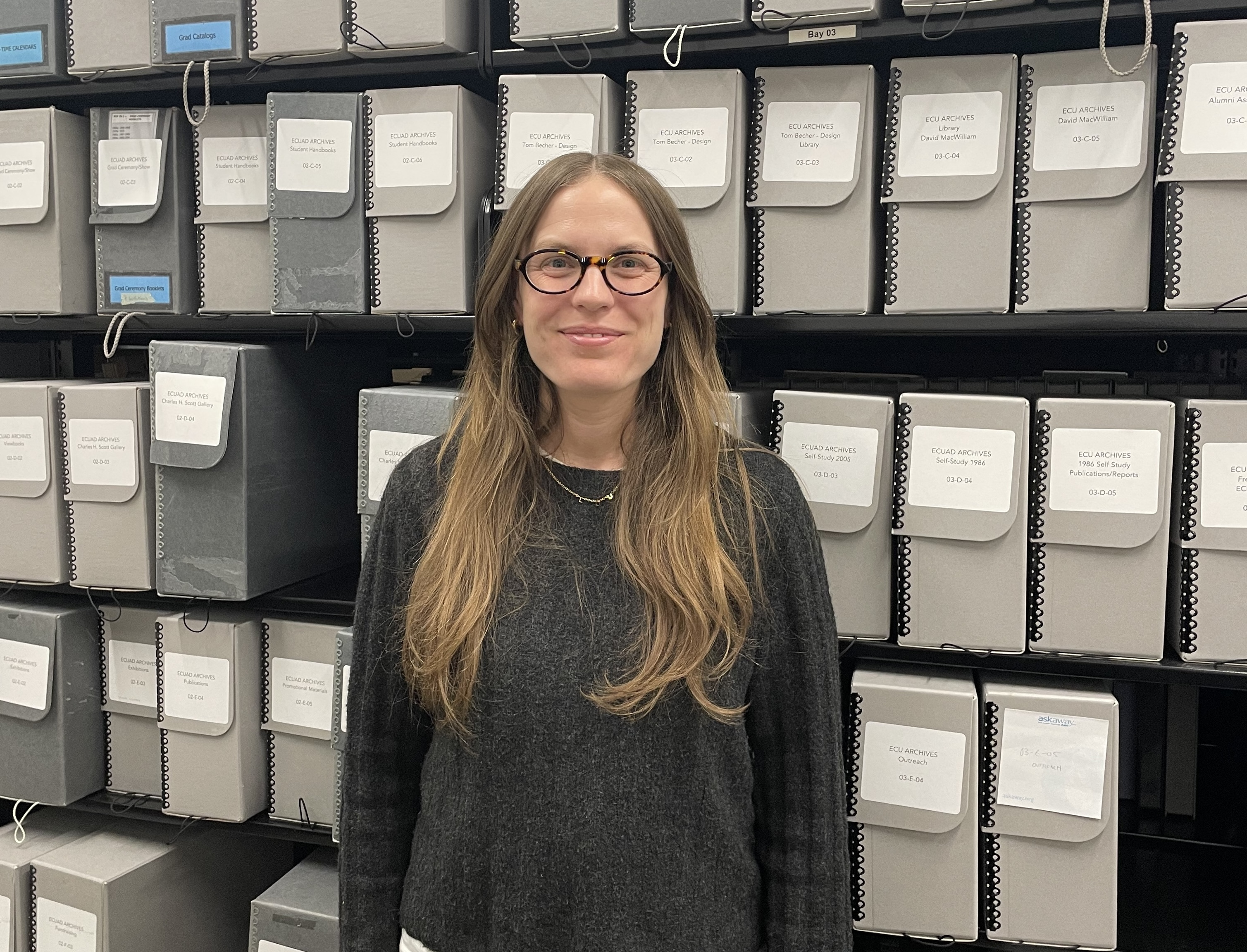
Posted on | Updated
In our âFive Questions Withâ series, we get to know members of our community and their invaluable roles in making Emily Carr University a great place to learn, work and teach.
As ČŦÃņēĘÆąâs (ČŦÃņēĘÆą) first archivist, Kristy Waller gets to delve deeper into our history and share the stories that shape our community. From travelling art education programs in the seventies to rare publications from the twenties, Kristy is committed to uncovering and preserving some of the hidden gems of ČŦÃņēĘÆąâs rarefied history.
In this edition of our Five Questions With series (with a bonus sixth), Kristy shares what itâs like to build an archive from the ground up and the importance of critical thinking in archival research.
What do you like about your role in the ČŦÃņēĘÆą community?
One of the things I enjoy most about my job is working with such a wide range of people: students, staff, faculty, and even folks from outside ČŦÃņēĘÆą, like community members and researchers who are interested in the records we have in the archive.
Itâs fun and rewarding work. I get to learn about various research topics, sometimes specific ones I knew nothing about, and help people shape their work. I especially love supporting students who are working on archival research projects. Whether connecting them with materials we have here or pointing them toward other archives, I enjoy helping build those connections across different areas of interest.
And then thereâs also working with student workers in the archives. They are curious about this kind of work and want to think critically about what an archive is, what it looks like, whose stories it tells, and how we can shape it moving forward. Those conversations are some of the most meaningful parts of my job.
How does it feel to be ČŦÃņēĘÆąâs first archivist?
I was hired in 2019, so I havenât been here that long. When I started, I inherited an archive made up of many, many boxes. Materials that had been cared for by librarians over the years. People would bring things in, knowing theyâd be looked after, or librarians would collect items themselves. So, in a way, the archive grew organically over time. Every record has a different story.
Since Iâve been here, Iâve built relationships across the school, with artists, different departments, and the Libby Leshgold gallery, which has helped bring in more materials and grow the collection a bit further.
Stepping into that role was a mix of excitement and pressure. In previous archival work, I was usually building on systems already created by other archivists to learn their processes and structures. At ČŦÃņēĘÆą, it felt like I was starting from scratch. It was refreshing to be able to shape things from the ground up, but also a bit intimidating trying to understand how all these materials fit together, what stories they can tell, and how to make them accessible.

A pamphlet from the Printmobile, an initiative in the 1970s-90s to teach art across the province
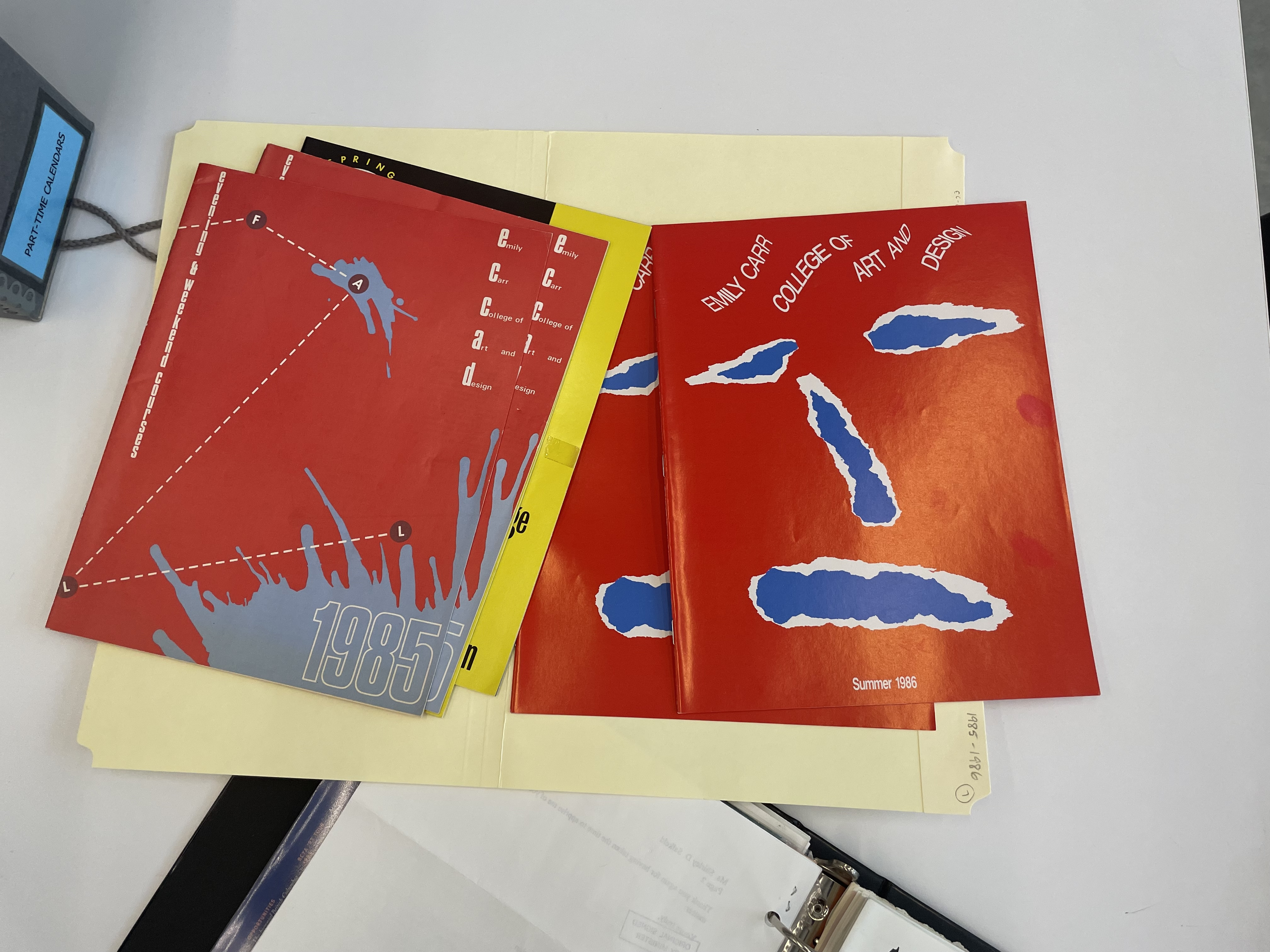
A stunning Matisse-style program guide from 1985 and 1986
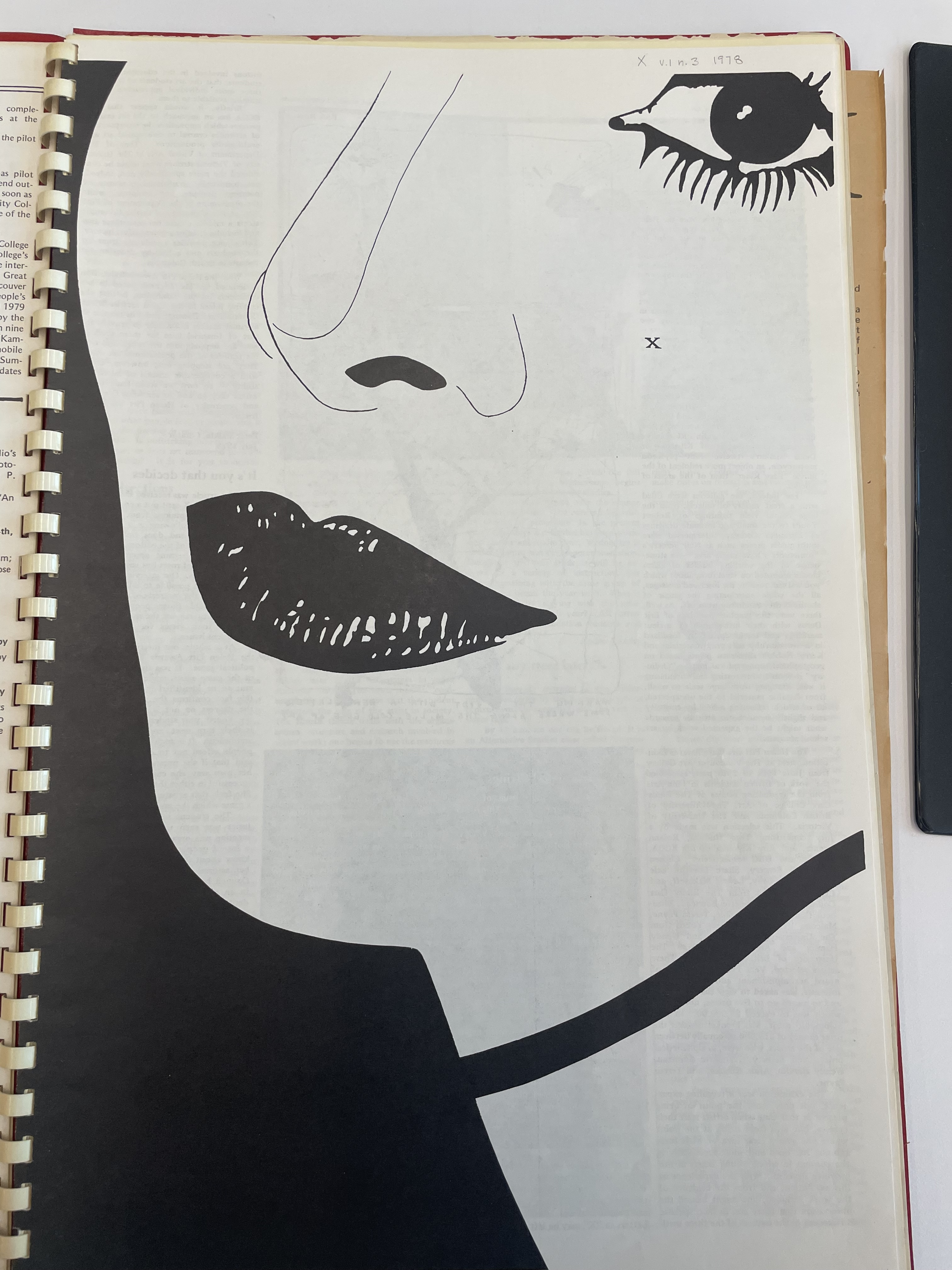
A closeup from a student newspaper
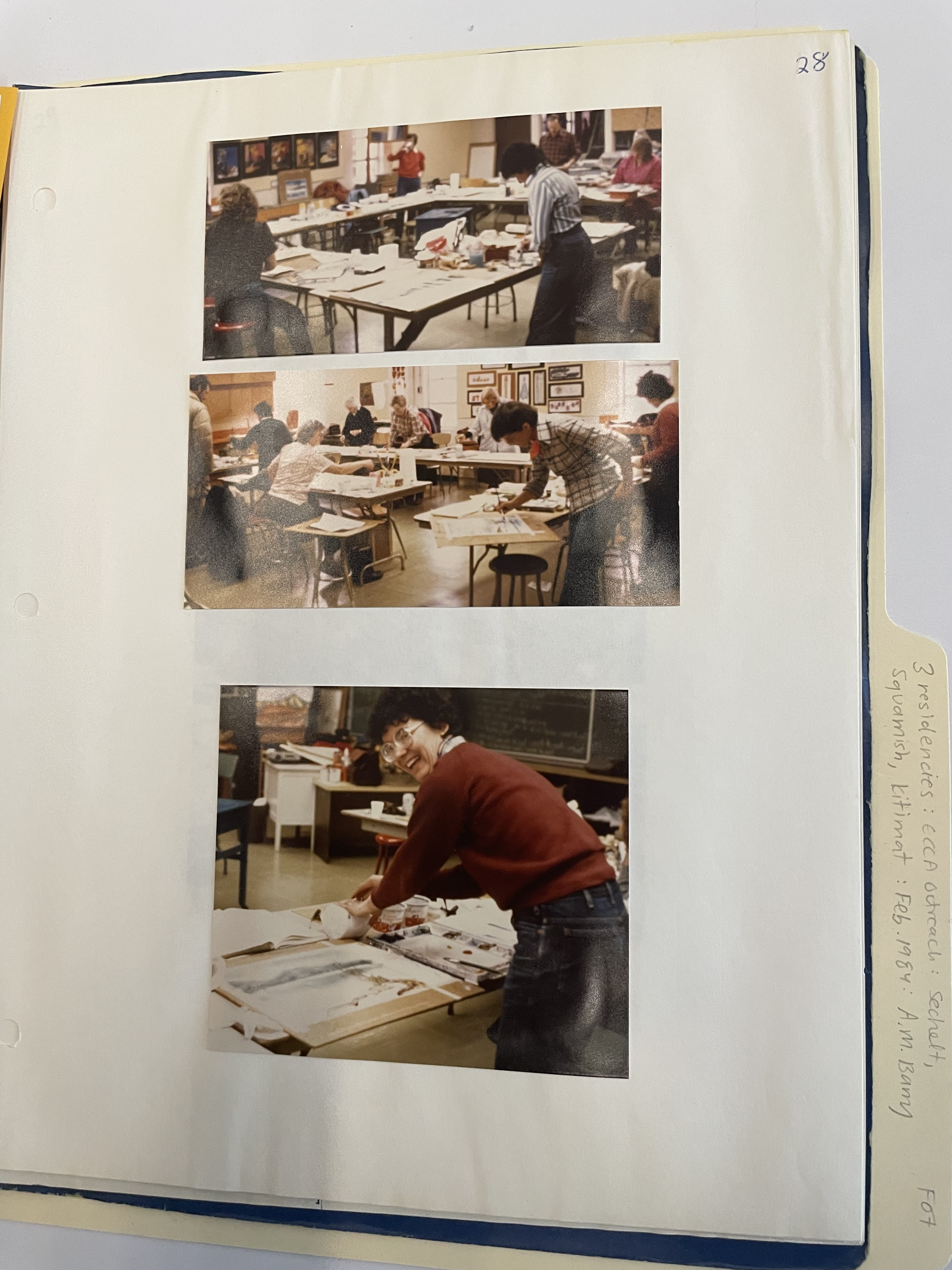
Photos of Printmobile members teaching art in Sechelt, Squamish, and Kitimat in Feb 1984
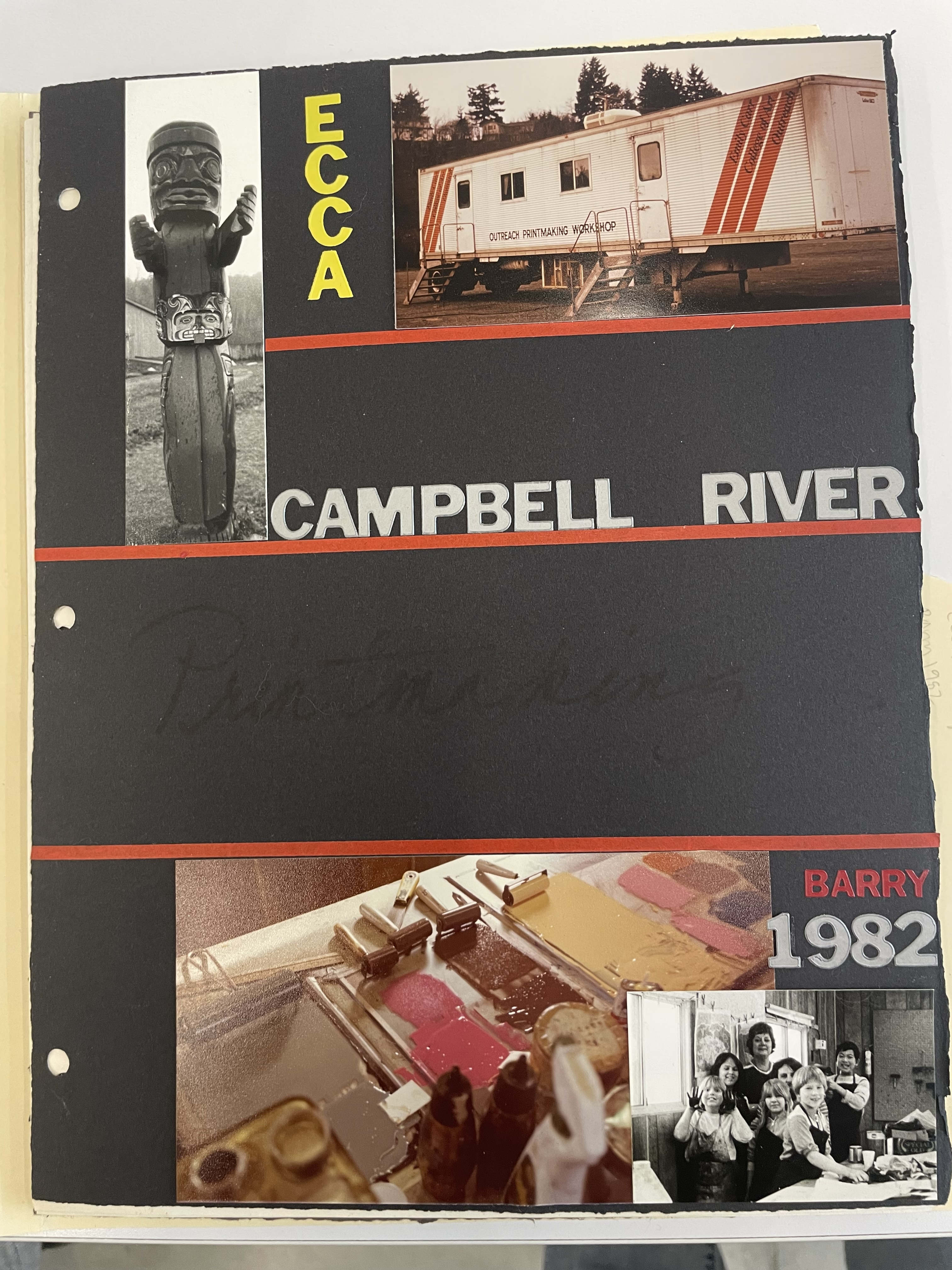
A booklet of Printmobile printmaking workshop in Campbell River in 1982
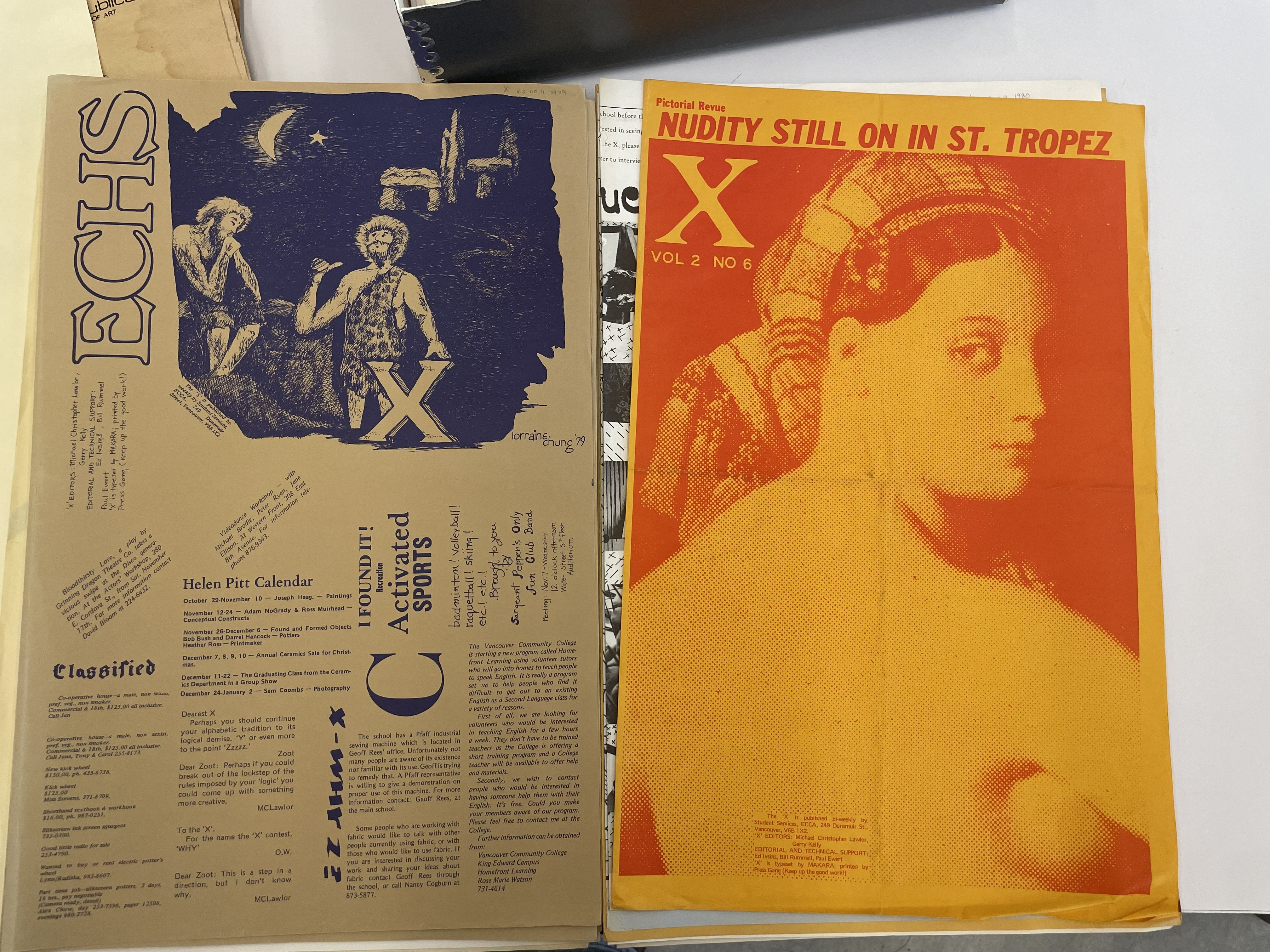
Some of the fun and cheeky issues from X, the student newspaper from 1979 and 1980
What aspects of the ČŦÃņēĘÆą archives fascinate you?
One of my other favourite parts is the Printmobile. The Printmobile would travel all over BC, delivering workshops to kids, adults, and schools. It was part of an outreach program from around 1978 to 1994. They were doing a lot, from telecourses, the Printmobile, and even training for elementary school teachers. The goal was to make arts education more accessible across the province.
In the nineties, the program was cut entirely, but we still have binders full of letters and articles, people talking about how much it meant to them. It built meaningful connections and did such great work. Weâve got these incredible photographs, kids doing screen printing, and teachers writing reports that included impressions of the towns they visited and the relationships they built there. It was beautiful, community-based work.
What misconceptions about archiving and ČŦÃņēĘÆąâs history do you want to demystify for the community?
One thing I think is essential to understand is that archives are quite different from libraries. Libraries mostly contain published materials, whereas archives are focused on unpublished, unique, or rare materials, things that are often one-of-a-kind and hard to replace. They're different professions in many ways, even though they often get grouped together.
Another misconception is that if you find something in the archives, that what youâve found is the whole story or that itâs the truth. Itâs tempting to get swept up in the emotion because youâre touching something that someone touched a long time ago, and that can feel powerful when you're doing such material-based research. But you have to remember that these are just pieces of a much bigger story. There are always other perspectives, memories, and experiences that might not be recorded.
So, itâs vital to approach archival research with a critical eye, thinking about not only what youâre seeing but also what youâre not seeing.
What are you looking forward to as ČŦÃņēĘÆą turns 100?
Iâm looking forward to the stories that will come out of this. Itâs a chance to hear perspectives that were not captured in official records or archives. I want to hear both the good and the bad, how this school has shaped art and design, not just in the province, but across the country and in peopleâs personal lives. I think itâs going to be powerful. And I guess, selfishly, Iâm also hoping that some things will surface -- things that we can include in the archive, so that others can read them, hear them or see them too.
Whatâs the most memorable concert youâve been to?
A few years ago, I saw Channel Tres while very pregnant. I remember the person next to me asking, âAre you coming to the DJ set afterward?â and I was like, âNo, Iâm very pregnant! I need to go home.â It was just one of those awkward and funny interactions!